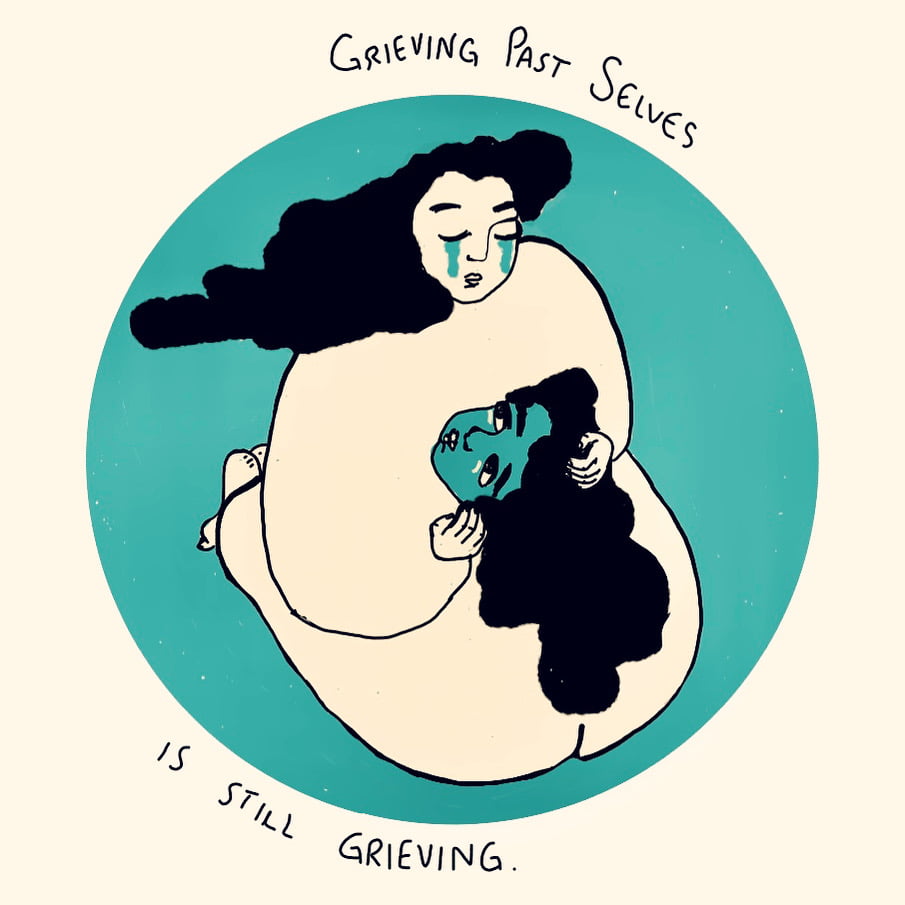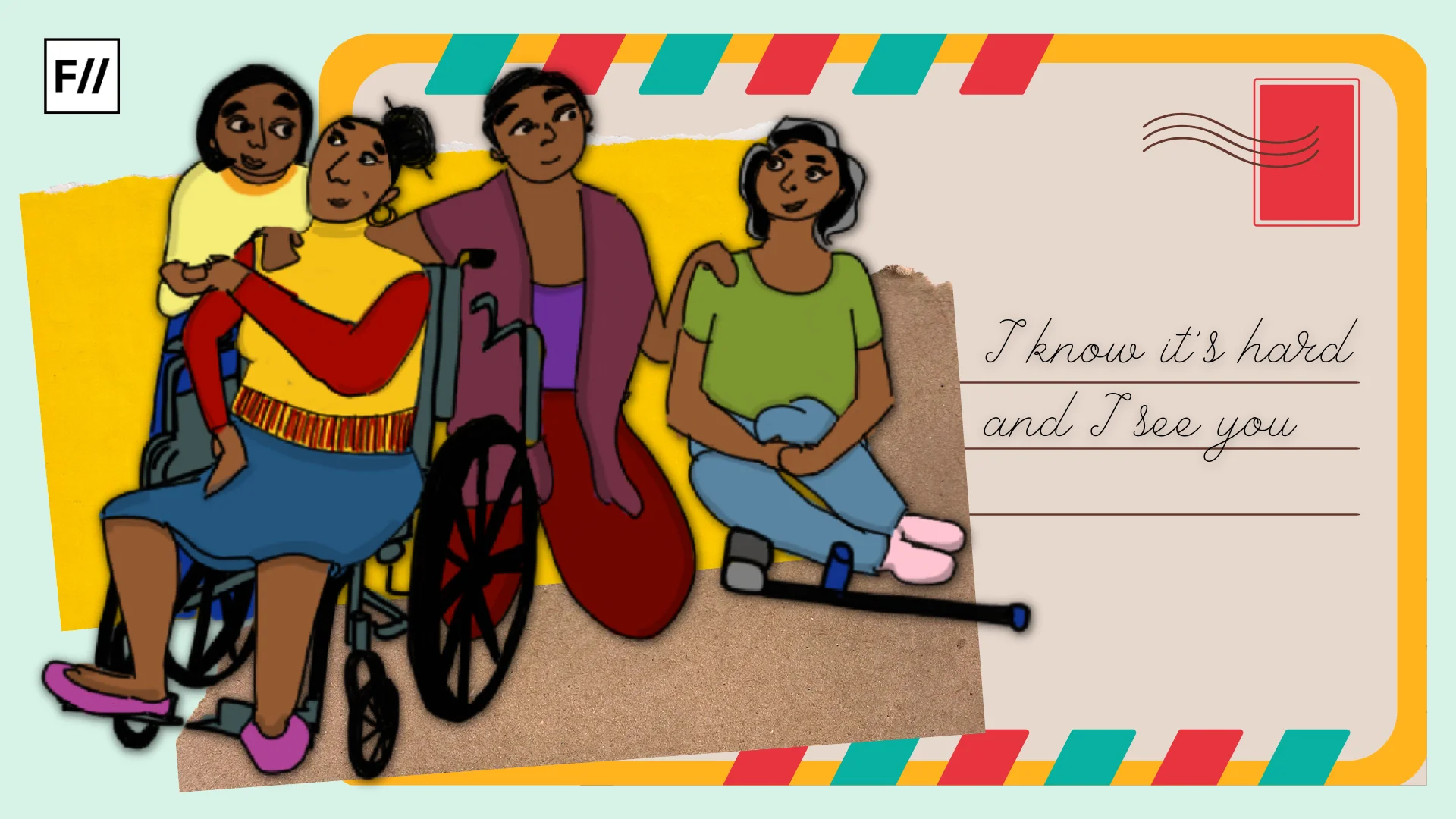Editor’s Note: Criplentine’s Day is a project by Revival Disability Magazine rooted in the belief that all kinds of love should be celebrated because love is a revolution. An accessible Valentine’s Day should be one that not only includes an able-bodied kind of love between two heteronormative lovers. As a part of the project, Revival Disability Magazine collaborates with Feminism In India to publish a series of articles on the theme. It will include a fairytale love story between a girl and her mobility aid, two queer, disabled lovers eating rainbow-coloured ice-cream and kissing each other with rainbow-coloured mouths, the love between two best friends who’ve created their own queer, disabled utopia by finding solace and belonging in each other in a new city, and more.
Posted By Gauri Gupta
Right from our childhood, we are told that the society we live in functions on certain norms, especially in the Indian context where societal norms are upheld to a great deal of importance. We are constantly told to follow these norms to meet with the expectations of society. During my childhood, probably similar to any other kid, I had these ideas about love. The fairy-tale kind. The ones with all kinds of bright and shiny happy endings. As I started growing up, this idea of love I had changed but honestly, it never got erased.
Growing up as a woman with disability I would hear different kinds of opinions about my identity, most with an intention to fix me. I thought that none of this would really affect me, but somewhere down the line it did, slowly and subtly, but it did. With time, it started getting more prominent. I remember when I was in the sixth standard, I had not a single friend around my corner. I sat alone for most of the year as I was the ‘weird’ kid of the class.
Also read: How Bollywood Has Distorted Our Ideas Of Sexuality And Body Image
Somewhere I always just wanted to be a ‘regular’ kid. The one everyone would know and want to be friends with. This was not the only problem. Stepping into adolescence, similar to any other thirteen-year-old kid, I started becoming very conscious of my looks. I had always been a ‘chubby’ kid and that became something that I was ashamed of. Being on a wheelchair, fat, ugly or at least that is how I would describe myself became a major issue. I was constantly anxious about not ‘fitting in’ with the rest of the girls in my class. I started to feel as if I were not one of them and I never could be.
Growing up as a woman with disability I would hear different kinds of opinions about my identity, most with an intention to fix me. I thought that none of this would really affect me, but somewhere down the line it did, slowly and subtly, but it did.
That age also opens up many possibilities of romance and love, so it did happen for many of my classmates. While people were developing crushes and romantic relationships, I was somewhere telling myself that I should not even bother, as this stuff is not made for people like me. I had people tell me “you know everything is perfect about you only if you were not disabled” or that “I want someone like you except just not someone who is not a wheelchair.“
I had an extremely hateful relationship with my body for the longest time that I can remember. Now, these body issues were also met with many other issues. I was angry at nobody but myself for being disabled. There were feelings of blame and self-hate. I used to blame myself for not being able to fit in. At some point, I would even hope for magic and miracles to just make ‘normal’ like everyone else. It is not as if I had no support at all. Some people were trying to help me, but every time someone said “you are not disabled, you are just different” or that “you have a special power that we don’t” ended up making me feel even more different.
At that age, I did not want to be anyone’s ‘inspiration’. I just wanted to be a ‘normal’13-year-old kid with a ‘normal’ life. I was angry most of the time and just shut off from everyone. The more anyone would try to make me feel positive, the more I would hate myself for not feeling it. I had tried everything to change myself just so my identity could be validated by ‘normal’ people. With time, I was then also introduced to the virtual world of social media. Seeing my friends actively post pictures about their lives I wanted to do that as well, but I was extremely ashamed of what people would think about my wheelchair.
The only solution that I could come up with now was to hide. I wanted to be like everyone else, so I thought the only way to do that is to hide my disability, body-fat, and everything else I would be ashamed of. I would crop my pictures so that my wheelchair would not be visible to anyone. If anyone asked about why I am sitting in all my pictures, I would simply dodge those kinds of questions. I would sometimes avoid going out as I never felt ‘pretty enough’ to fit into the beauty standards. For a while, it did work for me, but I could only see the hate for myself increasing no matter what I did.
I had an extremely hateful relationship with my body for the longest time that I can remember. Now, these body issues were also met with many other issues. I was angry at nobody but myself for being disabled. There were feelings of blame and self-hate. I used to blame myself for not being able to fit in.
As I started growing up, I became more conscious of my self and my identity. I started to realise that the only person I was truly hiding from is myself. With time, I decided to come out of that bubble. This realisation was not something that happened overnight. It was a slow and gradual process. I started taking pride in my identity, not being ashamed of my wheelchair, accepting the way I look and how my body is. It took me a lot of time to become in-charge of my life and become independent for about 99% of my every-day tasks.
Also read: The Orgasm Gap: How Body Shaming Affects Women’s Sexual Experiences
The idea of love for me has evolved over the years. I will not say that I have completely overcome all of my issues, but I am getting there one step at a time. Love is not all about romance and fairy tales. For me, love is about acceptance. This valentine’s day for me is all about acceptance of myself and loving myself for who I am.
It’s about embracing my normal.
Gauri is a final year undergraduate student at Lady Shri Ram college for Women. She advocates for disability rights as a writer and public speaker. She is a para-athlete at national and state levels.
Featured Image Source: Alia Sinha
About the author(s)
Revival Disability Magazine is a digital media project on Disability, Sexuality and Intersectional Ableism for disabled and queer folks, by disabled and queer folks. Revival is a revolution of the disabled self to re-claim and re-define stories of disability in India, through first person narratives of lived experiences and creating an accessible queer utopia echoing the vision of for inclusion and accessibility.




